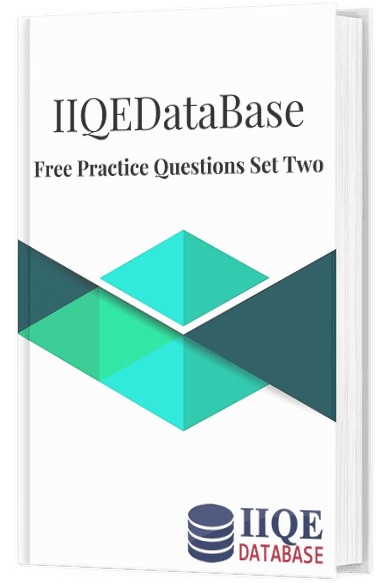Are you ready to delve into the intricate world of long-term insurance?
In this article, we will take you on a comprehensive journey through the key principles and concepts of the IIQE Long-Term Insurance Exam.
From understanding the importance of long-term insurance to mastering the essential concepts, we will equip you with the knowledge and analytical skills needed to excel in this field.
So, fasten your seatbelt and prepare to explore the depths of long-term insurance like never before.
Key Takeaways
- Long-term insurance regulations vary from country to country and aim to protect policyholders by requiring insurers to maintain reserves, undergo regular financial audits, and provide transparent disclosures to policyholders.
- Long-term insurance provides financial security and peace of mind by covering long-term illness or disability, helping with long-term care services, supporting nursing home care or in-home care, and offering various financial advantages and protections.
- The key principles of long-term insurance include risk assessment and management, adequate policy coverage, premium determination, claims processing, and policyholder rights and responsibilities.
- Important concepts in long-term insurance include effective risk management, comprehensive policy coverage, evaluation of insurance policies, consideration of terms, conditions, and exclusions, and assessment of the insurer’s financial stability and reputation.
Overview of Long-Term Insurance Exam
Long-term insurance provides coverage for individuals over an extended period of time. It is important to understand the long-term insurance regulations and the benefits of long-term insurance.
Long-term insurance regulations vary from country to country, but they generally aim to protect policyholders and ensure fair practices within the industry. These regulations may include requirements for insurers to maintain sufficient reserves, undergo regular financial audits, and provide transparent disclosures to policyholders.
The benefits of long-term insurance are numerous. It provides financial security and peace of mind for individuals and their families in the event of a long-term illness or disability. It can also help cover the costs of long-term care services, such as nursing home care or in-home care.
Understanding the regulations and benefits of long-term insurance is essential when considering this type of coverage. Now let’s delve into the key principles of long-term insurance.
Key Principles of Long-Term Insurance
Focus on the key principles of long-term insurance, which are essential for effective risk management and comprehensive policy coverage. Understanding these principles is crucial for insurance professionals to provide the best coverage options to their clients. To further delve into this topic, let’s take a look at the table below, which outlines five key principles of long-term insurance:
| Principle | Description |
|---|---|
| 1 | Risk assessment and management |
| 2 | Adequate policy coverage |
| 3 | Premium determination |
| 4 | Claims processing |
| 5 | Policyholder rights and responsibilities |
These principles form the foundation of long-term insurance, ensuring that risks are assessed and managed, policy coverage is sufficient, premiums are calculated accurately, claims are processed efficiently, and policyholders’ rights and responsibilities are upheld. By following these principles, insurance professionals can provide comprehensive coverage options that meet the needs of their clients. Understanding these concepts in long-term insurance is essential for success in the industry, as it equips professionals with the knowledge and skills to navigate the complexities of the field.
Understanding Concepts in Long-Term Insurance
To better understand the key principles of long-term insurance, you need to grasp the concepts that underpin effective risk management and comprehensive policy coverage. Understanding risk management is crucial in evaluating insurance policies, as it involves identifying, analyzing, and mitigating potential risks that may impact your financial wellbeing in the long run.
By evaluating insurance policies, you can determine if they provide adequate coverage for the risks you face and if they align with your financial goals and needs. This includes assessing the policy’s terms and conditions, exclusions, benefits, and premiums. Additionally, it is important to consider the insurer’s financial stability and reputation, as these factors can affect the insurer’s ability to fulfill their obligations in the future.
By understanding these concepts and conducting a thorough evaluation of insurance policies, you can make informed decisions that will protect your financial future.
Now, let’s delve into examining the importance of long-term insurance without delay.
Examining the Importance of Long-Term Insurance
Understanding the significance of long-term insurance is essential in protecting your financial wellbeing and securing your future. Long-term insurance plays a crucial role in providing financial stability and peace of mind when unexpected events occur.
One of the key benefits of long-term insurance is its ability to provide a safety net for you and your loved ones in the event of disability, critical illness, or death. It ensures that you have a source of income to cover daily living expenses, medical bills, and other financial obligations.
Long-term insurance also offers tax advantages and can help preserve your assets. By having a comprehensive long-term insurance plan in place, you can safeguard your financial future and protect the people you care about most.
Now, let’s explore the concepts you need to master for the iiqe long-term insurance exam.
Mastering the Concepts for the IIQE Long-Term Insurance Exam
Now let’s dive into the key ideas you need to grasp for the IIQE long-term insurance exam.
When it comes to exam preparation, it is essential to develop effective study techniques that will maximize your chances of success. To master the concepts for the IIQE long-term insurance exam, you must first understand the principles and concepts of long-term insurance.
Start by familiarizing yourself with the different types of long-term insurance policies, such as life insurance, disability insurance, and long-term care insurance. Then, delve into the key terms and definitions related to long-term insurance, such as premiums, benefits, and exclusions.
Additionally, make sure to grasp the principles of risk management and underwriting in the context of long-term insurance.
Frequently Asked Questions
What Are the Eligibility Requirements for Taking the IIQE Long-Term Insurance Exam?
To take the IIQE long-term insurance exam, you need to meet certain eligibility requirements. These requirements ensure that you have the necessary qualifications and knowledge to successfully complete the exam.
The exam duration and question count will be determined by the IIQE. It is important to thoroughly understand the eligibility requirements and be prepared for the exam.
How Long Is the IIQE Long-Term Insurance Exam and How Many Questions Are Included?
The IIQE long-term insurance exam is a journey of endurance and knowledge. It tests your understanding of the industry and your ability to apply it in real-life scenarios.
When it comes to the duration, the exam typically lasts for around three hours.
As for the number of questions, you can expect to face approximately 100 multiple-choice questions.
Are There Any Specific Study Materials or Resources Recommended for Preparing for the IIQE Long-Term Insurance Exam?
For the IIQE long-term insurance exam, there are recommended study materials and online resources available to help you prepare. These resources can provide you with the necessary knowledge and understanding of the exam concepts.
They offer thorough and analytical explanations to ensure you are well-prepared. By utilizing recommended study materials and online resources, you can enhance your chances of success in the IIQE long-term insurance exam.
What Is the Passing Score for the IIQE Long-Term Insurance Exam and What Happens if a Candidate Fails?
The passing score for the IIQE long-term insurance exam is 70%. If you fail to achieve this score, you will not receive a passing grade and will have to retake the exam.
Failing the exam can be disappointing, but it is important to learn from your mistakes and use the experience to improve your understanding of the subject matter. Keep studying and preparing, and you will have a better chance of passing the next time.
Is There a Time Limit for Completing the IIQE Long-Term Insurance Exam?
In order to answer your question about the time limit for completing the IIQE long-term insurance exam, let’s imagine you’re embarking on a journey.
Just like any journey, there are certain eligibility requirements you must meet before setting off. Once you’re eligible, you will be given a specific time limit to complete the exam.
It’s important to manage your time wisely and prepare adequately to ensure you can finish within the given timeframe.
Conclusion
Congratulations! You’ve successfully completed the journey through the principles and concepts of the Long-Term Insurance Exam. By mastering these key principles and understanding the concepts, you’ve equipped yourself with the necessary knowledge to navigate the world of long-term insurance.
As the saying goes, "Knowledge is power," and in this case, it’s the power to protect and secure the future. So go forth with confidence and apply your newfound expertise to make informed decisions in the realm of long-term insurance.



